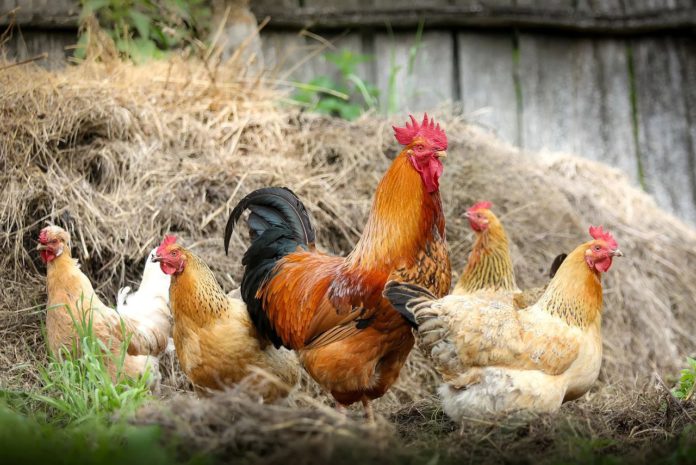The Department of Agriculture, Food and the Marine has introduced enhanced biosecurity measures as a precaution against HPAI.
It has introduced regulations under the Animal Health and Welfare Act 2013 requiring flock keepers to apply particular bio-security measures for poultry and other captive birds as a precautionary measure against Highly Pathogenic Avian Influenza (HPAI), as well as a ban on the assembly of birds.
These precautionary measures against avian influenza (bird flu) come into effect on November 17th, 2021.
The initiative follows confirmation of HPAI H5N1 in wild birds in Galway, Donegal, Kerry, Roscommon, and Offaly since early November.
These wild bird findings confirm that the avian influenza virus is circulating “widely” in Ireland’s wild bird population.
HPAI
In a statement this evening (Monday, November 15th, 2021), the DAFM said:
“This reservoir of infection in wildlife poses a risk to our poultry flocks and industry.”
“There have not been any outbreaks in poultry flocks at this time,” it added.
These regulations require all poultry keepers (and other captive bird) flocks to implement specific biosecurity measures.
The DAFM stressed that irrespective of size, keepers are required to help mitigate the risk of infection of their poultry from the virus.
Furthermore, flock-owners in respect of flocks of 500 birds or more will have to implement additional enhanced biosecurity measures.
The DAFM urged poultry flock owners to:
- Remain vigilant for any signs of disease in their flocks;
- Maintain strict biosecurity measures;
- Report any disease suspicion to their nearest DAFM RVO, even if they only have one or two birds.
The Health Protection Surveillance Centre confirmed that the HPAI H5N1 subtype can cause “serious” disease in poultry and other birds.
However, no human infections with this virus have been reported worldwide. Therefore, the DAFM added, the risk to humans is considered to be “very low”.
“Properly cooked poultry and poultry products, including eggs, are safe to eat,” the DAFM added.
Clinical signs that poultry keepers should look for in their birds include:
- A swollen head;
- Discolouration of neck and throat;
- Loss of appetite;
- Respiratory distress;
- Diarrhoea and fewer eggs laid – although these vary between species of bird.
Contact RVO or DAFM
Furthermore, the DAFM advises members of the public are advised not to handle sick or dead wild birds.
It has urged people to report any episodes of sick or dead wild birds to the Regional Veterinary Office or contact the DAFM disease hotline on 1850 200456.
An early warning system is in place with Birdwatch Ireland, the National Parks and Wildlife Service and the National Association of Regional Game Councils with regard to surveillance for signs of disease in wild birds.
Finally, the department continues to “closely” monitor and assess the disease situation and is in “regular” contact with industry stakeholders.





